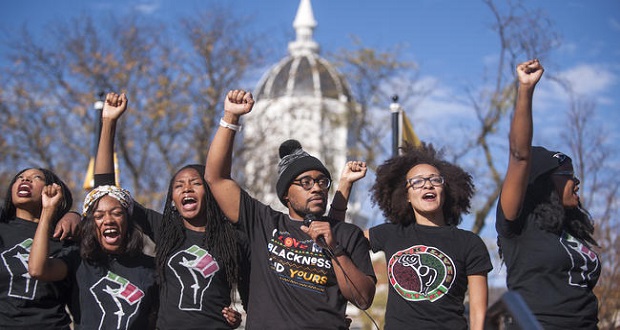
The late 60’s and early 70’s was certainly a time of civil unrest on college campuses from protests about the Vietnam War to Kent State where on May 4, 1970 four students were killed by National Guardsmen as they participated in a rally opposing the invasion of Cambodia. Fifteen days later, three black students were killed by Guardsmen at Jackson State in Mississippi as a result of racial unrest.
At my own alma mater, The University of Rochester in Rochester NY, I participated in numerous non-violent protests over the racial climate and lack of diversity among faculty. We picketed, occupied the administration building and called for new more inclusive policies. The level of protesting was so high that the campus shut down early my freshman year canceling all final exams and allowing everyone to just take a “p” for pass. The University of Rochester was certainly not alone. Campuses all over the country found themselves in similar predicaments. According to one source there were over 200 major demonstrations on college campuses in 1968.
Since the 1970’s we of course have continued to see students protest injustices of all types here and abroad. One of the most famous is the student-led Tiananmen Square protests of 1989 where hundreds of people were killed protesting Chinese leadership at the time. In 2011 we experienced the “Occupy Movements.” Occupy NY, Occupy Wall Street and a number of other “Occupy” sites were largely student led protests about the wealth inequalities in the US. So racial protests are not the only kind that have been led by students. Some experts say that youthful idealism and mistrust of establishment leads to the confrontations. I think it is much deeper than that.
I wonder though, if the protests actually fix the systemic situation that raised the issue in the first place. Wealth inequalities persist. Chinese students continue to challenge government and racism is obviously still an issue.
Why is it that in 2015 the black students at the University of Missouri found the climate to be so vile that they had to take such drastic measures? Why did this culminate in the stepping down of the president and chancellor of the University? Why did the whole football team with the backing of their white coach refuse to play? Why did one student go on a hunger strike? I venture to say that it could not have been all smoke and mirrors. There had to be some pretty serious incidents over a prolonged period and the students’ main objection is that the leadership of the University failed to take action.
Was all of that protesting in the 70’s for naught? I know that most major universities in this country continue to struggle with representation of blacks as professors and in high level administrative posts. We complained about that in the 70’s and it seems we have made little progress. However I would have thought that blatant racism had given way to a more PC environment. Not naïve enough to believe that racism does not exist, just hoping I guess it had gone underground and is more subtle today.
And while the University of Missouri has been most prominent in the headlines, hundreds of students at prestigious Yale University also protested institutionalized racism this week. The University leadership has responded saying that some of the recommendations would be implemented by Thanksgiving. Why though, did it take a march to get the powers that be to take action?
I am often asked if I think the younger generation is more open and harbor less racist attitudes because more of them have been exposed to an integrated society. My answer is usually “I don’t know but I hope so.” I see lots of evidence that we have not moved the needle as much as I would have hoped given all of the lives that were lost in the Civil Rights Movement of the 70’s.
I am sad. I am frustrated. At times I am angry. I have been at this work of diversity and inclusion for a long time and it disturbs me greatly that young black students who simply want an education, cannot get one without being subjected to in-your-face racism. Are we losing the fight? Were the decades of work done by so many all in vain?


















